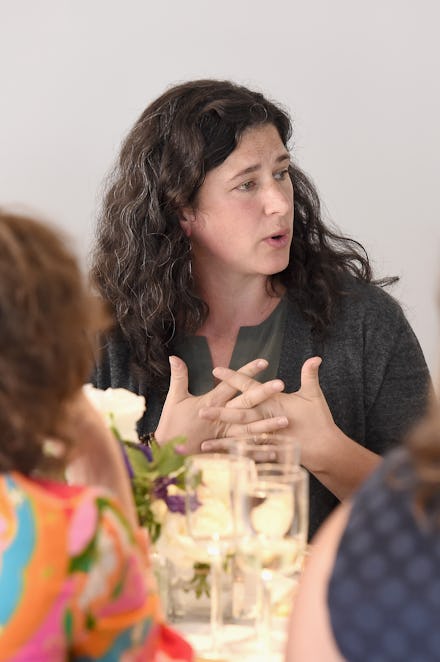Rebecca Traister's 'All the Single Ladies' is the perfect love letter to your bestie

In the Winter of 2001, shortly after graduating college, I met someone special at a warehouse party in Oakland, my soon to be home. Neela was the same age as me and also Bengali. She was so cool — a writer, a geek, an "alt" girl. She was someone who I felt understood me. Maybe it was the party drugs, or the beats we had to yell over, but this moment marked the start of what became a many-years-long best friendship.
But in the the summer of 2009, Neela got married. I was devastated. I felt betrayed, jealous and hurt. We had both been critical of the institution of marriage. We knew better, I thought. But she met someone great, and I simply couldn't deny that he was the one she should marry.
Neela and I are still soul sisters, but we have drifted apart, partially because she lives in LA and I in New York. We're both absorbed in our careers, and she's also busy raising a beautiful son. But our connection was so intense, it might as well have been romantic. But it wasn't — it was just a strong female friendship.
Rebecca Traister's All the Single Ladies, released in March, digs into many aspects and implications of the life of single women. By 2013, she writes, the National Center for Family and Marriage Research found the "marriage rate to be the lowest it has been in over a century" — just 31 marriages per thousand, compared with approximately 92 per thousand in 1920. Traister explores both the numbers and cultural realities that have led to the rise of single ladies — increased education, access to reproductive health technologies, financial success, urban life and even popular culture.
The author documents the mass political impact single women have on elections and beyond, hence the much sought after "women's vote." She also serves some harsh truths about how single women are still the poorest demographic of people and "single and loving it" is a mantra of the privileged. But what struck me most about her book, what I connected to most, was her ode to the political, cultural and social importance of female friendships.
Her chapter on female friendship is titled, "Dangerous as Lucifer Matches" — a quote from the husband of Charlotte Bronte in reference to letters she exchanged with her best lady friend, Ellen Nussey. Having browsed some of the letters these two sent to each other, Bronte's husband, Arthur Bell Nicholls, seemed shaken by their intimacy and asked Nussey to burn every letter she had received from his wife. He threatened, that if she did not promise to burn them he would no longer let Bronte and Nussey see each other.
It's a dramatic sentiment: The love between women is so threatening it must be burned. Yet it's a relatable sentiment today for a romantic interest to be deeply jealous, perplexed or even threatened by the depth of the emotional connection you share with your bestie.
Popular culture gives us great models of best friends, from Living Single to Sex and the City to Girlfriends. Having a bestie is not unusual, but having a best friend with whom you talk about something other than boys might be. However, Traister points out that female friendships involve so much more. Neela and I talk about our careers, writing, our passions, our travels and, yes, of course our romantic relationships. Our relationship is a whole one, not one defined by or in addition to the one we have with romantic partners.
Traister's documentation of the role of the female best friend is complex. While these are important relationships, they are not always honored by society, and they are often impacted by our marriage to others. She recounts one of her most painful memories of her best friend, Sara, leaving New York City for love in Boston. It felt like a break-up, Traister writes, and she felt alone. Similarly, when Neela decided to get married, I was there every step of the way, but I couldn't help feeling like I was losing something, that no matter how much we didn't want it to be the case, our lives would be different.
Perhaps this is because there is no formal way to honor these fundamentally life changing, necessary relationships the same way we honor our marriages. In an op-ed in the New York Times meditating on this aspect of her book, Traister writes, "There aren't any ceremonies to make this official. There aren't weddings; there aren't health benefits or domestic partnerships or familial recognition. There has not yet been any satisfying way to recognize the role that we play for one another. But, as so many millions of us stay unmarried for more years, maybe there should be."
"There has not yet been any satisfying way to recognize the role that we play for one another," Traister wrote in the New York Times of her best friend. "But, as so many millions of us stay unmarried for more years, maybe there should be."
I am unmarried, both by choice and because I haven't found the right person to settle down with. But I don't know if I would feel so comfortable about my decision if I didn't have several friends that I talk to everyday, that check in on me, that I can ponder life's biggest questions with and fulfill the role a significant other could.